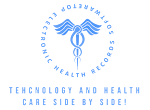The Office of the National Coordinator for Health IT announced a new proposed rule on Tuesday, containing new statutory language for further implementation and certification criteria of the 21st Cures Act.
The rule – Health Data, Technology, and Interoperability: Certification Program Updates, Algorithm Transparency, and Information Sharing, or HTI-1 – will be published next week in the Federal Register.
WHY IT MATTERS:
National Coordinator for Health IT Micky Tripathi, speaking at an online press conference announcing the new rule, said it was an exciting day for ONC to release the work on the rules around electronic health record certification and interoperability.
The new rule would address the foundational aspects of four key ONC priorities, he said: building the digital foundation of health record information; making interoperability easy; promoting information sharing, and ensuring proper use of digital health tools.
For further information on this subject matter: Click Here!
Also, read about MediSoft VS DrChrono: The Software For Tomorrow!
75Health EMR Software 101:
Electronic Health Records (EHRs) are digital versions of patients' medical records that offer healthcare providers secure and efficient access to patient data. EHR software systems have revolutionized how hospitals, clinics, and other healthcare facilities operate by streamlining patient data management, reducing errors, and improving patient care. 75health EMR Software is one such system that has gained popularity among healthcare providers worldwide. This article provides a comprehensive overview of 75health EHR software, including its features, benefits, and drawbacks.
Features of 75health EHR Software:
75health EMR software is a cloud-based system that offers several features to healthcare providers, including:
Customizable Templates: 75health EMR software provides customizable templates for different medical specialties, allowing healthcare providers to tailor their records to suit their specific needs.
Secure Data Storage: The software stores patient data in a secure and HIPAA-compliant cloud server, ensuring that patient data is safe and confidential.
Patient Portal: The software allows patients to access their medical records online via a secure patient portal, which promotes transparency and patient engagement.
Clinical Decision Support: 75health EHR software provides clinical decision support features that assist healthcare providers in making informed decisions about patient care by providing real-time data and analytics.
Integration with Medical Devices: The software integrates with various medical devices, such as blood pressure monitors and glucose meters, allowing healthcare providers to capture and store patient data more efficiently.
Benefits of 75health EMR Software:
75health EHR software offers several benefits to healthcare providers, including:
Increased Efficiency: The software streamlines patient data management, reducing the time and effort required to manage patient records manually.
Improved Patient Care: The software provides healthcare providers with real-time data and analytics, enabling them to make informed decisions about patient care.
Cost-Effective: The cloud-based system eliminates the need for expensive hardware and software, reducing the overall cost of implementing an EHR system.
Enhanced Patient Engagement: The patient portal provided by the software promotes transparency and patient engagement, allowing patients to access their medical records anytime, anywhere.
Better Data Security: The software stores patient data in a secure and HIPAA-compliant cloud server, reducing the risk of data breaches and ensuring patient data confidentiality.
Drawbacks of 75health EMR Software:
Like any other EHR system, 75health EHR software has its drawbacks, including:
Learning Curve: The software may require some training for healthcare providers to use it efficiently, which may be time-consuming.
Limited Customization: Although the software provides customizable templates, some healthcare providers may find that the templates do not meet their specific needs.
Technical Issues: As a cloud-based system, the software may experience technical issues that could disrupt healthcare providers' operations.
Conclusion:
75health EMR software is a cloud-based system that provides healthcare providers with several features to manage patient data efficiently. The software offers benefits such as increased efficiency, improved patient care, cost-effectiveness, enhanced patient engagement, and better data security. However, the software has its drawbacks, including a learning curve, limited customization, and potential technical issues. Overall, 75health EHR software is a reliable and efficient EHR system that healthcare providers can use to streamline patient data management and improve patient care.
Check out: eClinicalWorks vs. Athenahealth: Which One Fares Best for Medical Facilities?

